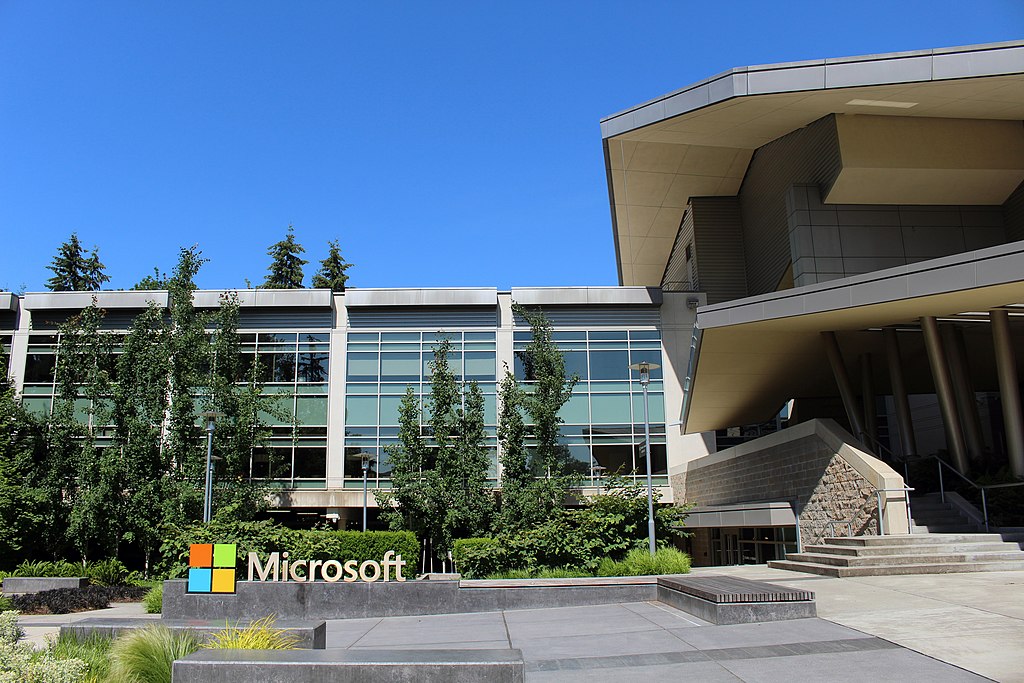The U.S. government has granted approval for the export of advanced artificial intelligence (AI) chips to a Microsoft-operated facility in the United Arab Emirates (UAE), marking a significant step in Microsoft’s partnership with Emirati AI firm G42. However, the deal has ignited controversy over national security risks and potential technology misuse.
A Controversial Partnership
Microsoft invested $1.5 billion in G42 earlier this year, securing a minority stake and a seat on the firm’s board. The collaboration allows G42 to leverage Microsoft’s cloud services for its AI applications, expanding the UAE’s capabilities in artificial intelligence.
The deal, however, has been under scrutiny by U.S. lawmakers, who raised alarms about G42’s potential ties to China. Lawmakers demanded a comprehensive review of G42’s connections to the Chinese Communist Party, military, and government before the deal could move forward. Concerns revolve around the possibility of U.S. AI technology being transferred to adversarial nations.
To mitigate risks, the export license includes stringent restrictions. Personnel from countries under U.S. arms embargoes, including China, are prohibited from accessing Microsoft’s UAE facility. The license also bars individuals affiliated with the Chinese government or organizations headquartered in China from using the facility.
National Security Implications
The deal highlights growing concerns over the global proliferation of AI technologies. U.S. officials have repeatedly warned of the risks posed by advanced AI systems, which could potentially facilitate the creation of chemical, biological, or nuclear weapons. In October, the Biden administration mandated that developers of large-scale AI systems disclose critical details about their technology to the government, signaling heightened vigilance in this sector.
G42, partially owned by Abu Dhabi’s sovereign wealth fund and chaired by Sheikh Tahnoon bin Zayed Al Nahyan, has attempted to alleviate concerns by emphasizing compliance with U.S. and international AI standards. However, skeptics argue that the restrictions on personnel access may not fully prevent sensitive technology from being misused.
Mixed Reactions Online
The U.S. government’s approval has sparked a flurry of reactions on social media, with users divided over the potential benefits and risks:
- @TechPolicyWatch: “Allowing this deal to proceed is a gamble. What if the AI tech falls into the wrong hands? #NationalSecurity”
- @AIInvestorAlert: “Microsoft is playing with fire. Partnerships like these could backfire in the long run. #G42Deal”
- @MiddleEastMonitor: “This deal strengthens UAE’s AI ambitions. A win for innovation, but at what cost? #AIChips”
- @CyberSecurityGeek: “Restricting access to Chinese personnel is a smart move, but loopholes always exist. #USExportPolicy”
- @GlobalTechObserver: “G42’s ties to China are worrying. How secure is this partnership really? #MicrosoftUAE”
- @InnovateNow: “UAE’s progress in AI is impressive. Let’s hope the safeguards are enough to address security concerns. #AIAdvancement”



 Anthropic Resists Pentagon Pressure Over Military AI Restrictions
Anthropic Resists Pentagon Pressure Over Military AI Restrictions  Trump Warns Iran as Gulf Conflict Disrupts Oil Markets and Global Trade
Trump Warns Iran as Gulf Conflict Disrupts Oil Markets and Global Trade  Meta Encryption Plan Sparks Child Safety Concerns Amid New Mexico Lawsuit
Meta Encryption Plan Sparks Child Safety Concerns Amid New Mexico Lawsuit  Trump Pushes Tech Giants to Build Power Plants to Offset AI Data Center Energy Costs
Trump Pushes Tech Giants to Build Power Plants to Offset AI Data Center Energy Costs  Venezuela Oil Exports to Reach $2 Billion Under U.S.-Led Supply Agreement
Venezuela Oil Exports to Reach $2 Billion Under U.S.-Led Supply Agreement  Germany and China Reaffirm Open Trade and Strategic Partnership in Landmark Beijing Visit
Germany and China Reaffirm Open Trade and Strategic Partnership in Landmark Beijing Visit  Australian Dollar Rallies on Hawkish RBA Outlook; Yen Slips as BOJ Faces Political Pressure
Australian Dollar Rallies on Hawkish RBA Outlook; Yen Slips as BOJ Faces Political Pressure  Argentina Tax Reform 2026: President Javier Milei Pushes Lower Taxes and Structural Changes
Argentina Tax Reform 2026: President Javier Milei Pushes Lower Taxes and Structural Changes  MOEX Russia Index Hits 3-Month High as Energy Stocks Lead Gains
MOEX Russia Index Hits 3-Month High as Energy Stocks Lead Gains  PBOC Scraps Forex Risk Reserve as Yuan Rally Pressures Chinese Exporters
PBOC Scraps Forex Risk Reserve as Yuan Rally Pressures Chinese Exporters  Amazon’s $50B OpenAI Investment Tied to AGI Milestone and IPO Plans
Amazon’s $50B OpenAI Investment Tied to AGI Milestone and IPO Plans  U.S. Deploys Tomahawks, B-2 Bombers, F-35 Jets and AI Tools in Operation Epic Fury Against Iran
U.S. Deploys Tomahawks, B-2 Bombers, F-35 Jets and AI Tools in Operation Epic Fury Against Iran  The Pentagon strongarmed AI firms before Iran strikes – in dark news for the future of ‘ethical AI’
The Pentagon strongarmed AI firms before Iran strikes – in dark news for the future of ‘ethical AI’  Nvidia Earnings Preview: AI Chip Demand, Data Center Growth and Blackwell Shipments in Focus
Nvidia Earnings Preview: AI Chip Demand, Data Center Growth and Blackwell Shipments in Focus  U.S. Stocks Close Lower as Hot PPI Data, Nvidia Slide Weigh on Wall Street
U.S. Stocks Close Lower as Hot PPI Data, Nvidia Slide Weigh on Wall Street  Gold Prices Steady in Asia, Set for Strong February Gains on Safe-Haven Demand
Gold Prices Steady in Asia, Set for Strong February Gains on Safe-Haven Demand 































